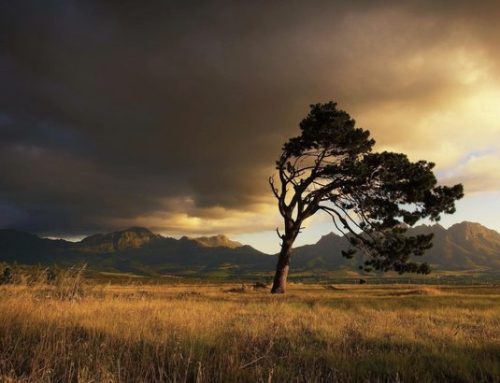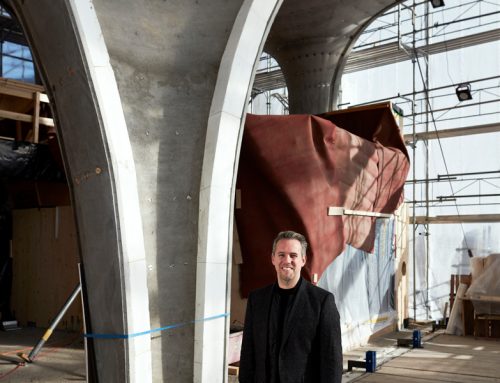 This is the question addressed in a report released yesterday, titled ‘South Africa’s Technical Readiness to Support the Shale Gas Industry’, commissioned and funded by the Department of Science and Technology (DST).
This is the question addressed in a report released yesterday, titled ‘South Africa’s Technical Readiness to Support the Shale Gas Industry’, commissioned and funded by the Department of Science and Technology (DST).
The report, produced by the Academy of Science of South Africa (ASSAf), with inputs from a panel of leading South African and international scientists, was handed to DST’s Director-General, Dr Phil Mjwara, at a function in Pretoria on 12 October.
The text and subtext of the report is, at the same time, enlightening, ominous and contradictory, with conflicting warnings and recommendations from the ASSAf.
On the one hand it warns that South Africa is not technically ready for a shale gas industry. It recommends that before any exploration or exploitation of shale gas can even be considered, it will require far more research and analysis of critical technical, legal, environmental, social and economic questions, such as how much gas there even is.
On the other hand, the report recommends that South Africa ‘must commit to a balanced, long-term shale gas exploitation strategy’. It makes recommendations on the exploration phases and interventions that are required for a shale gas industry, including specifics such as ‘high quality cement and steel to ensure well integrity.’
At the same time it points out that South Africa is in a substantially different position to the USA and UK, both of which have extensive, well-established gas industries and distribution networks.
The Karoo’s invaluable contribution to agriculture
A problem in the report is its myopic description of the Karoo. It says: ‘The Karoo is a place of unique biodiversity, stark beauty, wide-open vistas and unsurpassed night skies. Yet, the Karoo is also a place of intense poverty, with marginalised, structurally unemployed people and some of the greatest chasms between the rich landowners and those who own nothing. Therein lies the dilemma for decision-makers.’
This is a worrying generalisation that omits the Karoo’s significant contribution to food security and employment. The Eastern Cape region of the Karoo produces over 30% of the red meat in this country. Add the Western and Northern Cape regions of the Karoo and it goes up to approximately 50% of the country’s red meat production.
The question that many people are asking is whether shale gas mining would destroy the Karoo’s agricultural economy and associated jobs. The report raises concerns about the employment potential of shale gas mining given the expertise it requires, which would necessitate importing of skills until South Africans can be trained.
That said, let’s get down to three of the many key questions addressed in the report: how much shale gas there is in the Karoo, would the Karoo’s freshwater be threatened, and which potential exploration/exploitation areas are being considered?
How much shale gas is there?
The reports says ‘there is presently very limited knowledge about the 3-D geology of the Karoo Basin and its gas-shales, hence the very large range of estimates of potential shale gas resource, ranging from 10 trillion cubic feet (TCF) to 500 tcf. Recent geological and geochemical evaluations range between 19 and 23 tcf of recoverable reserves.
To ascertain this, the report recommends that exploration should be conducted in two phases, with remote geophysical sensing and deep-cored drill-holes implemented during Phase 1 to determine the subsurface distribution of gas-shales and location of ‘sweet-spots’. Phase 2, the reports says, would need to use hydraulic fracturing (fracking) to evaluate the retrieval success of the shale gas.
Which potential exploration/exploitation areas are being considered?
The report says the potential exploitation area where initial shale gas exploration could be done at depths of more than 1500m, is an area between Cradock-East London-Jansenville. The report advises that any area where the shale gas occurs at depths of less than 1500m should be excluded from exploitation to minimise the risks of groundwater contamination.
Would the Karoo’s water be threatened?
The report points out that groundwater boreholes are the major source of water supply for many communities, small towns, farms and other users in the Karoo. Most existing water boreholes in the Karoo are less than 150m deep, but the same groundwater may go down to depths of 500m or more.
The report warns that the greatest concern is that during and following fracking, saline groundwater and/or fracking fluids ‘could severely contaminate scarce groundwater sources via defective gas-wells and/or naturally occurring fracture zones, as well as from spills and leaks on the land surface due to accidents and poor work practices.’
The report adds that this is unlikely to happen if exploration/exploitation is well managed and regulated.
This needs to be contrasted with the emphatic assurances from Shell and other oil and gas companies that fracking is completely safe, there is no risk of groundwater pollution, that the chemicals used in the process are non-toxic and there is no possibility of technology, casing or drilling-associated problems.
The report then adds the following about the vast amounts of water required in fracking: ‘Given that it is most unlikely that it will be acceptable to use groundwater from shallow aquifers, the main source of water will be from deep saline aquifers. Operators will have to present detailed water management plans e.g. source of water, chemicals injected, reuse and recycling plans and waste water management.’
Baseline projects immediately required
The report advises that comprehensive baseline projects are required and should include surface, groundwater and subsurface research.
It recognises the Karoo baseline research projects being undertaken by the Africa Earth Observatory Network of the Earth Stewardship Science Research Institute (AEON-ESSRI) at Nelson Mandela Metropolitan University, as being timely and exemplary.
‘Without a comprehensive forensic baseline of how the Karoo looks today, ‘any contamination of groundwater or destruction of ecosystems related to hydraulic fracturing and harvesting of gas cannot be determined with sufficient accuracy or proven beyond reasonable doubt, rendering litigation around damage and externality costs of exploitation of the gas almost impossible’.
The report recommends that South Africa invest in academic and professional institutions to further develop the necessary baseline and monitoring capacity, and to establish an applied and experimental ‘Karoo Shale Gas Laboratory and Training College’ possibly in the Eastern Cape.




